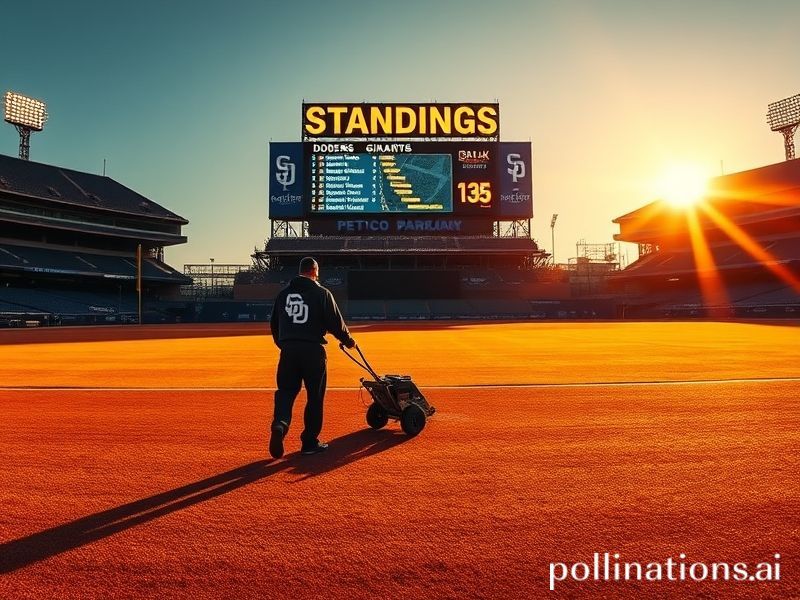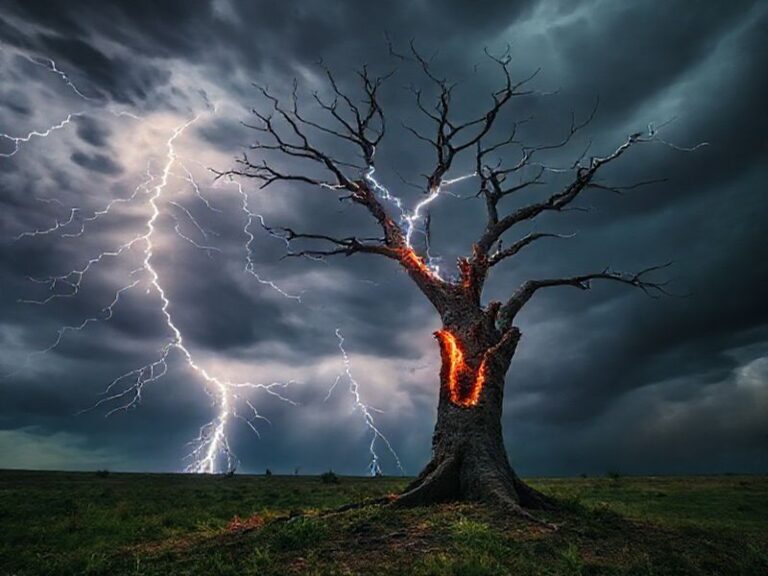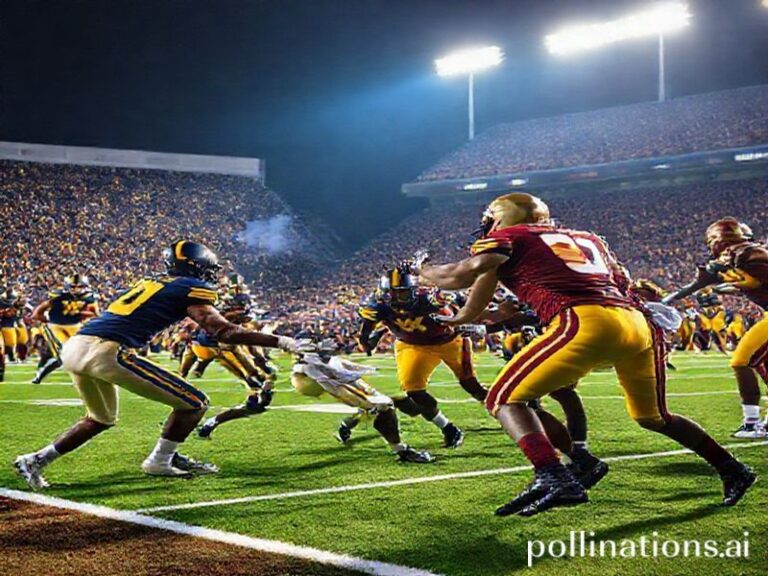padres standings
From the vantage point of a press box that smells faintly of IPA and failed expectations, the San Diego Padres’ current perch in the National League West standings looks less like a baseball story and more like a geopolitical parable. At 23-25, the Friars sit five games behind the Dodgers—an outcome that, if you squint, resembles every multilateral summit since 1945: lots of star power, a few noble speeches, and the nagging suspicion that the fix was in from the start.
To the uninitiated, a .479 winning percentage is merely arithmetic. But toss that number into the planetary blender and it becomes a tidy metaphor for the 2024 human condition. Consider: the Padres’ payroll is north of $250 million, roughly the GDP of Samoa. Yet their run differential is negative, which is also how most countries now feel about their credit ratings. In Geneva, climate negotiators call this “performative mitigation”—burning cash to look busy while the ice caps keep sliding into the ocean like a lazy outfielder giving up on a gapper.
Across the Pacific Rim, the standings are parsed with the same fervor once reserved for maritime boundary disputes. Japanese sportswriters note that Yu Darvish’s ERA has ballooned to 4.75, prompting Tokyo analysts to draw parallels with the yen’s exchange rate: both numbers are drifting seaward and neither responds to emergency interest-rate hikes. Meanwhile, South Korean fans watch Ha-Seong Kim’s league-average OPS and console themselves that, unlike their northern neighbors, at least one Korean on the field is allowed to leave the yard.
In the European Union—where baseball is still regarded as a quaint American ritual akin to putting corn syrup on communion wafers—diplomats have discovered that the Padres’ bullpen offers a useful euphemism. “We entered the Ukraine negotiations with Hader-like confidence,” a Brussels source quipped, “only to discover we were actually Robert Suarez in the eighth inning of a one-run game.” The comment drew knowing chuckles and a fresh round of austerity measures.
Back in the Americas, the standings carry a whiff of déjà vu. During the Cold War, the U.S. propped up baseball in Latin America the way it propped up banana republics: enthusiastically, until the bill arrived. Today, Tijuana fans peer north across the rusted fence and watch Manny Machado jog out a grounder with the same languid entitlement that once defined IMF loan terms. Somewhere in Caracas, a state television anchor cites the Padres’ inability to manufacture runs as proof that late-stage capitalism cannot, in fact, hit a curveball.
The truly global takeaway lies in the schedule: 162 games, no timeouts for existential dread. It is the one arena where a collapsing Arctic ice shelf, a crypto exchange implosion, and a manager’s decision to leave in a gassed reliever all unfold on the same immutable timeline. The standings, updated nightly, serve as the last honest news feed on Earth—cruel, precise, and refreshingly free of algorithmic spin. When the Padres drop three straight to the Rockies at Coors Field, it isn’t described as “alternative momentum”; it’s a loss, logged forever, like a war-crimes tribunal with box scores.
Which brings us to the cosmic punch line: every September, roughly a dozen franchises convince themselves that 88 wins and a Wild Card berth constitute salvation. In geopolitical terms, this is the sporting equivalent of declaring “strategic ambiguity” while your aircraft carrier takes on water. The Padres, bless their expensive hearts, appear poised to reenact that tragicomedy once again. Their standings line isn’t just a ranking; it’s a mirror held up to a species that keeps buying bigger boats instead of learning to swim.
So when the next update pings your phone at 3 a.m. in whatever time zone insomnia has parked you, remember: somewhere in San Diego, a $43 million slugger just struck out on a slider in the dirt, and somewhere else a central banker just called it “transitory.” Both statements are technically correct, and both miss the point entirely.
Conclusion: The Padres’ middling record will not end wars or lower sea levels. But it does remind us that failure, unlike most exports, remains democratically distributed. In a fractured world, that may be the closest thing we have to solidarity—proof that whether you wield a bat or a balance sheet, gravity always gets the last at-bat.







